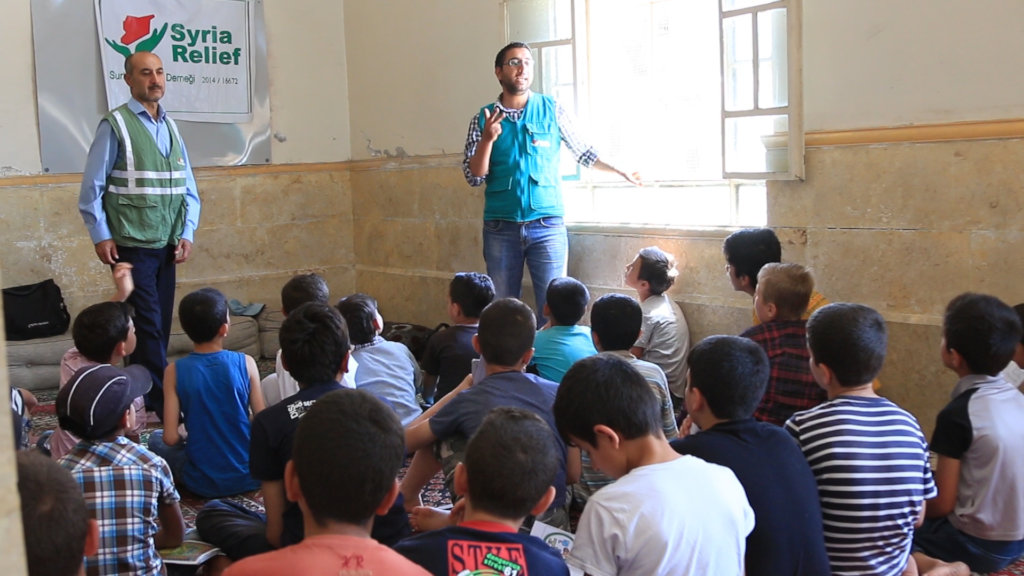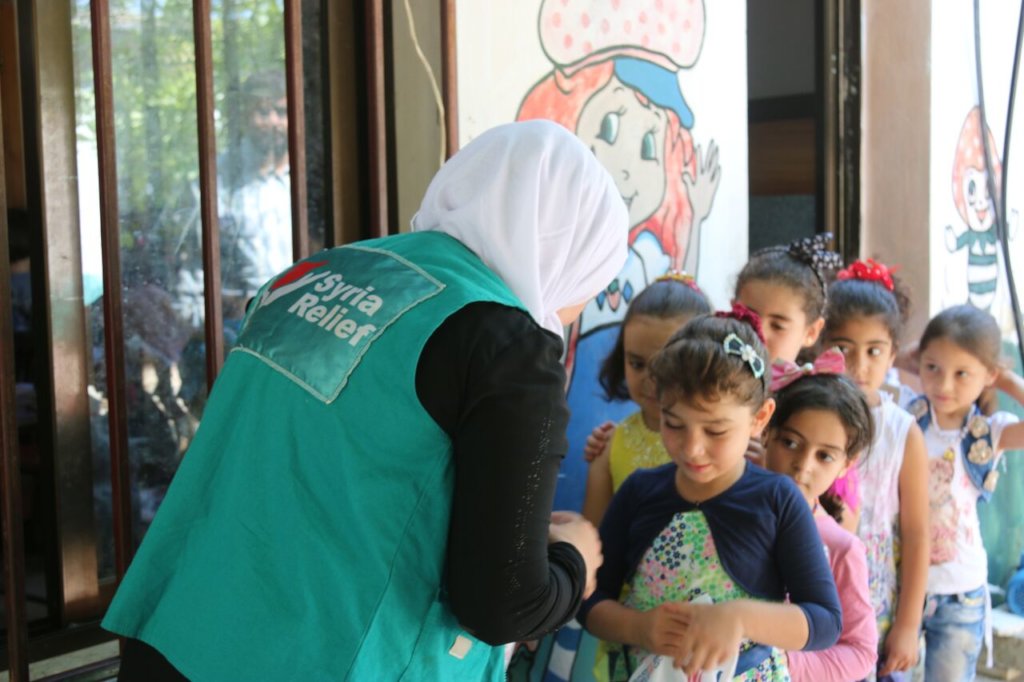By Kate Nichols | Director of Development, CARE USA
Hundreds of thousands of civilians are at immediate threat of displacement and their lives could be endangered by a large scale military offensive on Idlib. The area is home to 3 million people, two thirds of whom are already in need of aid. And nearly half of the population has already been displaced from other parts of Syria and lives in difficult conditions. They might not have a place to go, no refuge from bombs and airstrikes. If those men, women and children have to move again in search for safety, they will slip more into vulnerability and will be at risk of diseases, not to mention death. We could be witnessing a humanitarian catastrophe unlike anything we have seen in Syria since the beginning of the conflict.
CARE works in Idlib through Syrian organizations that have been our partners for years. Syrian aid workers are at the front line of the response, distributing much needed food and non-food items, clean water, clothes, blankets, cash, rehabilitating collective shelters, and extending psycho-social support to thousands of people in need. But CARE does not stop there. Since the start of the year, CARE and its partners have reached more than 300,000 people, extending support to the most vulnerable for their basic needs but also working with people to restore livelihoods, particularly agriculturally based ones, protect maternal health, and repair small infrastructure.
We are in the process of positioning stocks and assistance to respond to the immediate needs of 75,000 people at the onset of mass displacement. We are planning to distribute food baskets, ready to eat food rations, non-food and shelter items for newly displaced people, hygiene items, clean water and jerry cans, emergency latrines, cash, as well as providing psychosocial support.
CARE is at the front lines of the refugee crisis in Syria, and we thank you again for your generosity. As we deliver on our mission by providing assistance, we encourage you to fight with CARE through your continued support.
Links:
Project reports on GlobalGiving are posted directly to globalgiving.org by Project Leaders as they are completed, generally every 3-4 months. To protect the integrity of these documents, GlobalGiving does not alter them; therefore you may find some language or formatting issues.
If you donate to this project or have donated to this project, you can receive an email when this project posts a report. You can also subscribe for reports without donating.

